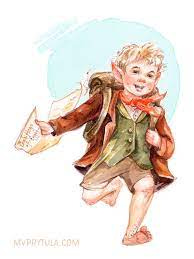The First Great Tolkien Epic - Analyzing the Greatest Fairy-Story Ever Written - Bilbo's Awakening to the Adventure & Need of the Divine Masculine
Awesome right?
Once the music ends, and the sombre discussions are at an end the Dwarves and Gandalf decide that it is time for bed for all the small Hobbits of the world. Naturally Bilbo is shooed off to bed (despite being 50 years old), with one almost able to imagine this being the point when John Ronald Reuel Tolkien ushered Priscilla his youngest, to her own bed.
…



